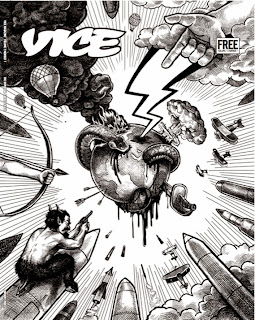Today let us talk about South America’s largest nation-
Brazil. We are going to discuss some questions, such as – How is social media
influencing Brazil? What is the status of Brazilian journalists? What problems
is Brazil facing at the moment? And perhaps, what’s going to be Brazil’s
future?
Looking back in the history, Freedom of Speech in Brazil was
most restricted during the military regime in 1967, when Article 151 was added
to the constitution, limiting citizen’s liberty. It was until when Brazil
became democratic and all this came to an end. It is a democratic country and has been democratic ever since
1985. There are three types of governments – Presidential, Federal Judiciary
and Congress. Since the end of military rule in 1985, unionization, collective
bargaining, and frequent strikes have become commonplace
among federal employees in all the three branches of government.The current president of Brazil is Dilma Rousseff.
Investigating journalism in Brazil, we can see how it is
facing crisis at the moment. This is because of two main reasons – one
being the growing competition with new technologies and internet, which means
how Brazilians have started believing online comments and broadcasted news. The
second reason being, economic pressures to cut costs and do more with less of
journalists and other costly reporting.
 According to the World Press Freedom Index, Brazil is a
country which exposes journalists to physical danger. In 2013, there were five journalists
murdered and this made Brazil one of the deadliest countries for media
personnel in western hemisphere. Now, due to all these cases journalists find
it risky to cover subjects like – corruption, drugs and illegal trafficking.
According to the World Press Freedom Index, Brazil is a
country which exposes journalists to physical danger. In 2013, there were five journalists
murdered and this made Brazil one of the deadliest countries for media
personnel in western hemisphere. Now, due to all these cases journalists find
it risky to cover subjects like – corruption, drugs and illegal trafficking.
A major problem faced by Brazil this year was when
Brazilians in São Paulo protested against the massive amount of money spent on
2014 Football World Cup and 2016 Olympics. They said that all that money could
have been used in hospitals and education. Another thing which was quite
astonishing was when state military police was still using the methods it used
during the time of dictatorship. Around 100 journalists were victims of
violence and two-third of the blame went on the police.
Looking at these scores stated by the Freedom House this year, we can say that Brazil is neither the best nor the worst in context with press freedom.
Moving on to media, Brazil has South America's largest media market – thousands of broadcasting radios, TV channels and a strong press. Social media has influenced Brazilians in many ways like in purchase decisions, brands interacting directly with social networks and job recruitment.
Now let’s go to the vital part – Future of Brazil. Due to the
growth of social media, people have started doubting what is being told to them
by politicians and journalists.
Instead , they have started drifting towards
other sources like – online broadcasted news, posted comments by people on face
book, articles and even blogs. They find it trustworthy, and unbiased. Old
newspapers have now taken a backseat.
Journalism in Brazil won’t improve if media reforms are not
taken seriously and discussed in a mature manner.This cannot be achieved by journalists’ good intentions and individual commitment alone.It is important to recognize that more structural and
long lasting improvements in the media will necessarily depend upon- deepening of the Democratization Project
and Economic force.
After reading all
this the questions that come to our mind are-How will the media industry
protect their institution? How will they retain positive public perception of
their journalistic integrity and regain the trust of their readers?
(Can also refer to Power point presentation on this topic)









